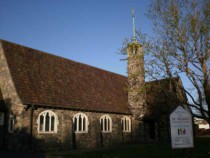 CANTERBURY HISTORY FOUNDATION – THE JIM GARDNER MEMORIAL LECTURE 2014.
CANTERBURY HISTORY FOUNDATION – THE JIM GARDNER MEMORIAL LECTURE 2014.
Sunday 20 July at 2.30pm in Central Lecture Theatre C2 at the University of Canterbury (plenty of free parking)
Dr David Monger win speak on the subject:
‘Lies, Damned lies, and Propaganda: British state propaganda in the First World War.’
First World War propaganda has generally had a poor reputation. Lord Kitchener’s famous pointing finger is credited in many popular accounts with tricking a generation of young men into volunteering themselves for the futile slaughter and inept leadership of the war. Modern understandings of propaganda as a deceitful and manipulative weapon derive from the post-war backlash against the efforts of the First World War. •
However, in the same way that historians have increasingly challenged received wisdoms about the conflict’s military history, this talk will show that such assumptions about British state propaganda provide a false and inadequate impression. Far from inspiring British enlistment, the ‘Kitchener’ poster was released after the first and largest rush of enlistment and it was-not one of the most regularly used posters. Propaganda served a multitude of purposes besides recruitment, and was presented in a variety of forms. Atrocities were a part of the story told by propagandists, but not the only thing discussed. And such issues matter because casual assumptions about the inaccuracy of all atrocity stories and the dishonesty of propagandists are used to assist other endeavours, such as the denial of the Armenian genocide.
David Monger is a Senior Lecturer in Modem European History at the University of Canterbury. He is an expert in the history of British official propaganda during the First World War. His book Patriotism and Propaganda in First World War Britain: the National War Aims Committee and civilian morale was first published in 201 2 and released in paperback in 2014. He is currently working on a project exploring British propaganda and the Armenian genocide.
RHODES MEDAL 2014
Before the lecture this year’s Rhodes Medal will be presented to Mr Roger Gilbert, President of the Ellesmere Historical Society, in recognition of his sterling efforts to preserve the historical heritage of this part of Canterbury.
A gold coin donation for the afternoon tea will be appreciated.
 The Parish of Opawa- St Martins is pleased to be able to host ” Saluting the Sacrifice” in which four speakers will talk on aspects of the First World War.
The Parish of Opawa- St Martins is pleased to be able to host ” Saluting the Sacrifice” in which four speakers will talk on aspects of the First World War.
 CANTERBURY HISTORY FOUNDATION – THE JIM GARDNER MEMORIAL LECTURE 2014.
CANTERBURY HISTORY FOUNDATION – THE JIM GARDNER MEMORIAL LECTURE 2014.